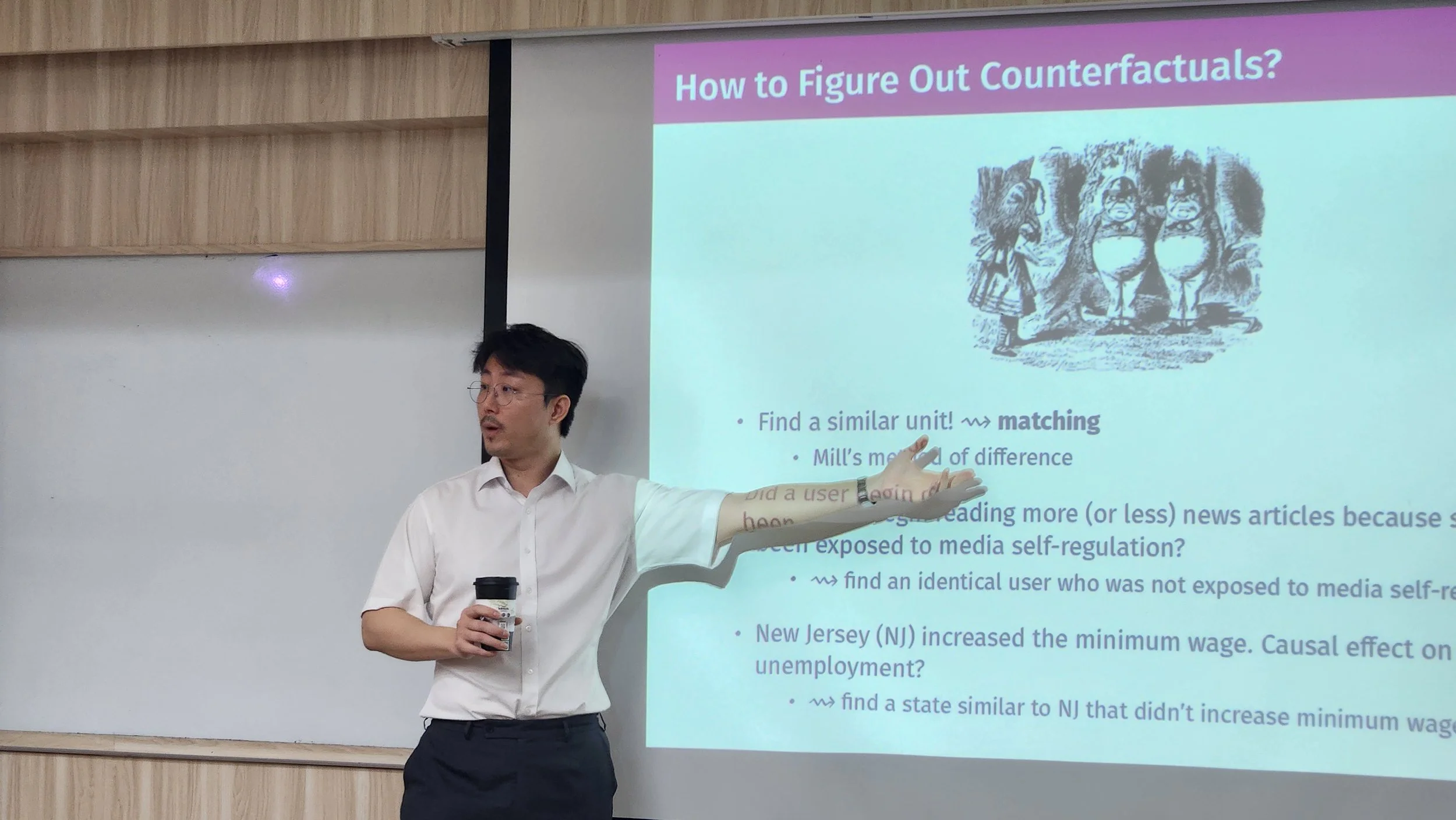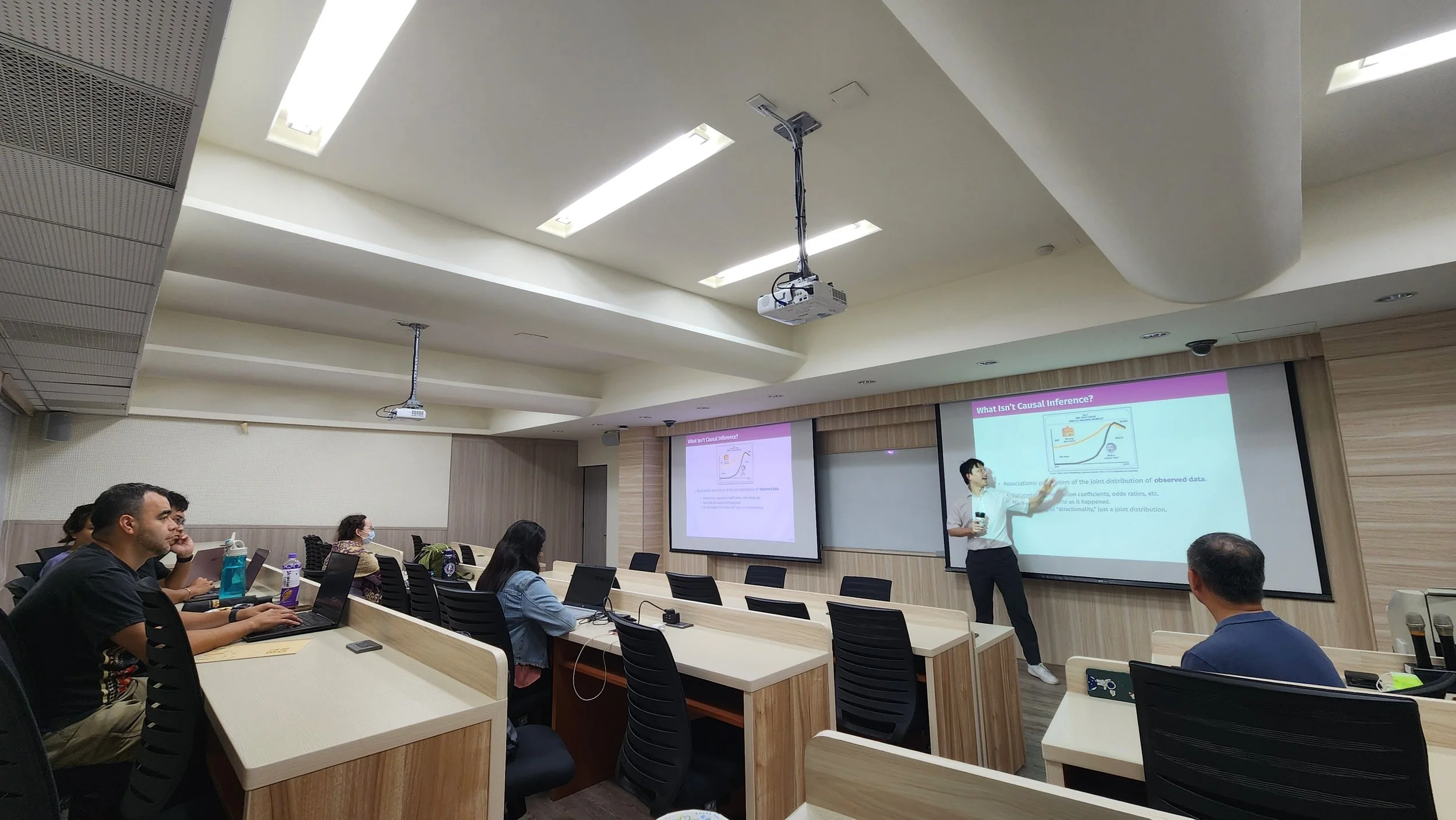《112-2 IB514》Empirical Causal Studies in IS
On May 20, 2024, Dr. Yoo Jaewon from NTHU delivered a lecture called “Empirical Causal Studies in IS” in Dr. Chen’s IBMBA MIS (management information systems) class. Dr. Yoo divided his lecture into two parts. The first part was about causal inference and the second used a causal study as an example to illustrate how to regulate content in digital media platforms.
Dr. Yoo started his lecture with a detailed discussion and explanation of factual and counterfactual as the base of causal inference. He explained that counterfactuals could not be observed and could only be inferred. He also introduced several research concepts such as the observational-causal bridge, which was about connecting missing data to observed data. Dr. Yoo further defined causal effects, which was about connecting observed outcomes to potential outcomes. He next discussed fundamental issues of casual inferences and how to figure out counterfactuals.
Upon introducing those fundamental concepts, Dr. Yoo continued his lecture using his research on the digital platforms as an example. He first introduced the research motivation that stemmed from the dark side of digital platforms and potential solutions for such rising social issues. His main interests were in how media regulations affect platform users’ news consumption behavior and differential effects of these regulations. He then explained two distinct policies and two major news platforms in South Korea.
Upon data collection from December 2019 to June 2020, his findings suggested that policy indeed impacted users’ evaluation of digital platforms. More specifically, coercive policy led to significant decrease in total number of news read and cleaner platform environment led to significant increase in total number of news read. His research findings led him to conclude that the platform policy’s objective to create a cleaner environment was especially relevant to users who regularly read comments and that media self-regulation could both harm and help consumption and thus profitability depended on whether the policy intervention was coercive or voluntary.
Dr. Yoo concluded his lecture with an interactive Q&A session.


